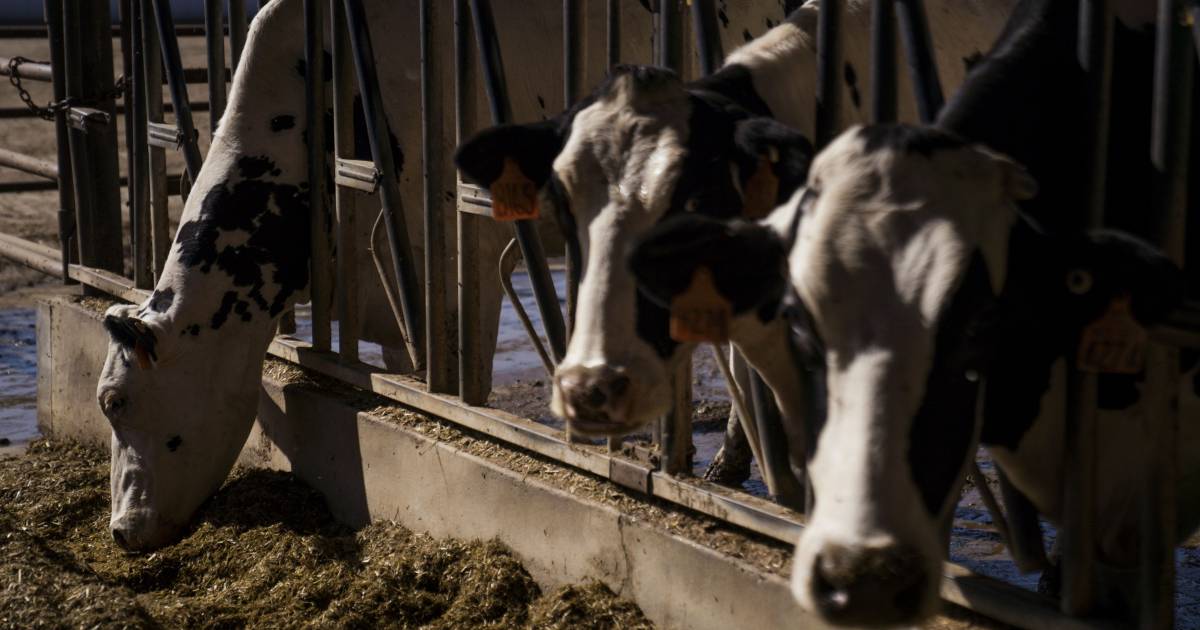The spread of cases of Bird flu in dairy cows has rattled livestock markets as concerns grow that a broader outbreak could hit consumer demand.
The U.S. Department of Agriculture said Monday it confirmed the avian influenza virus in a New Mexico dairy herd, as well as five additional herds in Texas. A person in Texas was also diagnosed with bird fluprobably after being exposed to infected dairy cows, according to the US Centers for Disease Control and Prevention.
Cases have also been found in Kansas and Michigan.
According to the USDA, contamination from cows does not pose a significant threat to the safety of milk and other dairy products sold in grocery stores because they are pasteurized before entering the market. Still, milk from affected animals is being diverted or destroyed from entering the human food supply. The Food and Drug Administration is not aware of any milk or dairy product from symptomatic cows being sent for marketing.
“There remains no concern that this circumstance poses a risk to consumer health or impacts the safety of the commercial milk supply,” the USDA said. Additionally, milk loss has been too limited to have a major impact on supply and prices, the agency said.
The U.S. Centers for Disease Control and Prevention said people should not eat raw or undercooked foods from animals that may be infected. To date, no cases of avian flu have been reported in cattle.
Cattle futures rose as much as 1.2% early Tuesday on the Chicago Mercantile Exchange, paring a 2.7% decline in the previous session.
“The market has made a big jump toward the idea that meat demand will definitely be severely affected by bird flu,” Dennis Smith, an analyst at Archer Financial Services Inc., said in an interview. “I don't think this will have an impact.” serious about the demand for beef right now.”

